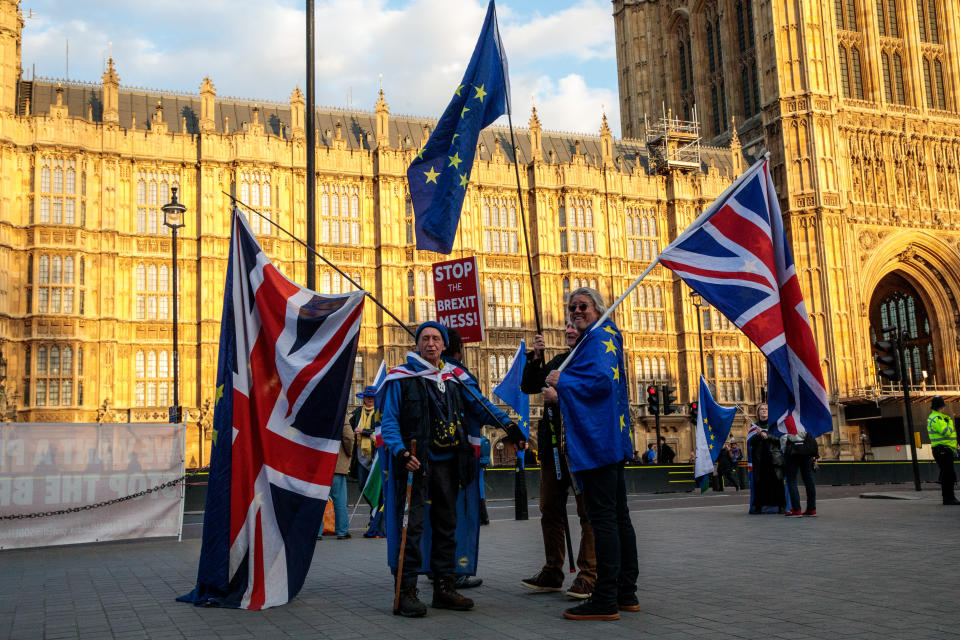All the Brexit options MPs could vote on in one chart

Dutch bank ING has produced a useful graphic summing up all the possible Brexit options that MPs could voice their opinions on.
MPs are due to hold a series of indicative votes on Wednesday evening addressing various Brexit options in a bid to find a plan with enough support to pass. It comes after parliament twice rejected prime minister Theresa May’s Brexit deal and as the prime minister continues to resist calls to compromise.
Politicians have put forward at least 16 proposals to vote on, ranging from withdrawing Article 50 and remaining in the EU to a no-deal Brexit. John Bercow, the speaker of the House of Commons, will select which of the 16 proposals will be put to a vote later on Wednesday.
Here’s ING’s graphic summing up the options (note the numbered core options at the bottom):

“In theory, we think a permanent customs union is most likely to get backing from MPs — it’s a softer form of Brexit that doesn’t involve free movement of people,” James Smith, an economist at ING, wrote on Wednesday.
However, other analysts remain sceptical that Wednesday’s indicative votes will break the deadlock.
“The vote will reportedly be a single ballot containing every option with a yes/no decision to be made,” Jim Reid, a strategist with Deutsche Bank, said in a note Wednesday morning. “So it’s quite possible that we end up getting a muddled outcome with no clear majority position.”
“We have seen little in the way of cross-party consensus over the 21 months since the
Brexit referendum and I don’t expect a spirit of cooperation to magically appear at this 11th
hour,” according to Darren Sinden, a market analyst with trading platform Pepperstone.
“A no-deal Brexit remains a genuine possibility and one that’s not properly reflected
in sterling exchange rates by a market that believes that a deal can still be struck and a no deal
averted.”
The pound was up 0.3% against the euro to €1.17 (GBPEUR=X) and up 0.2% against the dollar to $1.32 (GBPUSD=X) at just after lunchtime on Wednesday.
“Prime minister May has indicated that she would not be bound by the outcome of the indicative, which are not legally binding. Although, it is far from certain that a parliamentary consensus will emerge from the votes in any case. Overall, sterling could experience some volatility today,” Conor Beakey, an economist at Allied Irish Bank, said.
————
Oscar Williams-Grut covers banking, fintech, and finance for Yahoo Finance UK. Follow him on Twitter at @OscarWGrut.
Read more:
Debenhams shares jump 80% as Mike Ashley’s Sports Direct weighs £61m bid
‘Deep frustration and anger’ as business leaders tell MPs to compromise on Brexit
Apple’s new Goldman Sachs credit card could be part of deeper push into finance
UBS: Pound could fall by 10% if there’s a hard Brexit

 Yahoo Finance
Yahoo Finance 